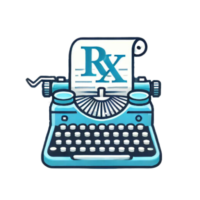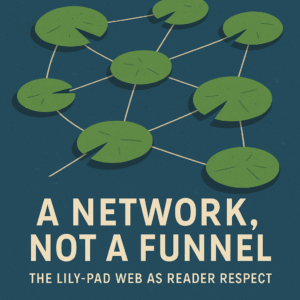The pharmacy profession is undergoing significant transformation. With advancements in technology, changes in healthcare delivery, and an increasingly competitive job market, pharmacists are exploring non-traditional career paths to maximize their Doctor of Pharmacy (PharmD) degrees. Transitioning into high-demand roles not only broadens career opportunities but also leverages specialized skills that are increasingly valuable in the evolving healthcare landscape.
Introduction
Career Diversification: Exploring Non-Traditional Paths
The traditional roles of pharmacists in community pharmacies and hospitals are experiencing shifts due to factors like automation and market saturation. According to the U.S. Bureau of Labor Statistics, employment of pharmacists is projected to decline by 2% from 2020 to 2030, primarily due to the rise of online pharmaceutical sales and automated dispensing systems. This trend underscores the importance of career diversification for pharmacists seeking sustainable and fulfilling careers.
Objective: Leveraging a PharmD for New Opportunities
A PharmD provides a strong foundation in medication management, patient care, and clinical knowledge. By identifying and transitioning into high-demand fields, pharmacists can apply their expertise in new contexts, enhancing patient outcomes and contributing to innovative areas of healthcare.
Identifying High-Demand Fields
Health Informatics: Intersection of IT and Pharmacy
Health informatics is a rapidly growing field that combines healthcare, information technology, and data management. Pharmacists in this domain work on:
- Electronic Health Records (EHR) Optimization: Enhancing EHR systems to improve medication safety and efficiency.
- Data Analytics: Analyzing health data to identify trends, improve patient care, and reduce costs.
- System Implementation: Assisting in the deployment of pharmacy information systems and training staff.
According to a report by Grand View Research, the global healthcare informatics market size was valued at USD 34.5 billion in 2020 and is expected to grow at a compound annual growth rate (CAGR) of 12.8% from 2021 to 2028.
Pharmacogenomics: Personalized Medicine Focus
Pharmacogenomics involves studying how genes affect a person’s response to drugs. Pharmacists specializing in this area contribute to:
- Personalized Medication Therapy: Tailoring treatments based on genetic profiles to enhance efficacy and reduce adverse effects.
- Research and Development: Participating in clinical trials and studies to develop new therapies.
- Consultation Services: Advising healthcare providers on pharmacogenomic testing and interpretation.
The National Human Genome Research Institute highlights that pharmacogenomics is key to advancing precision medicine, a high-priority area in modern healthcare.
Skill Assessment
Transferable Abilities: Communication, Analysis, and Problem-Solving
Before transitioning, assess the skills acquired during your PharmD program and professional practice:
- Communication Skills: Essential for patient education, team collaboration, and stakeholder engagement.
- Analytical Thinking: Critical for data interpretation in health informatics and research in pharmacogenomics.
- Problem-Solving Abilities: Valuable for addressing complex healthcare challenges and optimizing patient care.
Gaps to Address: Additional Training or Certifications Needed
Identify any skill gaps that may require further education:
- Certifications: Consider certifications like Certified Professional in Health Informatics (CPHI™) or credentials in pharmacogenomics.
- Continuing Education: Enroll in courses or workshops to gain specific knowledge relevant to the new field.
- Advanced Degrees: Pursue a master’s degree in informatics or a related field if necessary.
Networking and Mentorship
Professional Connections: Building Relationships in Target Fields
Networking is crucial for discovering opportunities and gaining insights:
- Attend Industry Conferences: Events like the American Medical Informatics Association (AMIA) symposium or pharmacogenomics conferences.
- Join Professional Organizations: Become a member of groups such as the Healthcare Information and Management Systems Society (HIMSS).
- Online Networking: Utilize platforms like LinkedIn to connect with professionals in desired fields.
Learning from Others: Gaining Insights from Experienced Professionals
Seek out mentors who can provide guidance:
- Informational Interviews: Schedule meetings to learn about their career paths and advice.
- Mentorship Programs: Participate in formal mentorship opportunities offered by professional organizations.
- Shadowing Experiences: Observe professionals in their work environment to gain practical insights.
Marketing Yourself
Resume Enhancement: Highlighting Relevant Experiences
Tailor your resume to reflect skills pertinent to the high-demand role:
- Emphasize Relevant Projects: Include any experience with health IT systems, data analysis, or research.
- Showcase Achievements: Quantify accomplishments, such as improved medication adherence rates or successful implementation of a new system.
- Include Keywords: Use industry-specific terms to pass automated applicant tracking systems (ATS).
Interview Preparation: Articulating Your Value Proposition
Prepare to convey how your background benefits the employer:
- Practice Common Questions: Anticipate questions about transitioning fields and prepare thoughtful responses.
- Demonstrate Passion: Express genuine interest in the field and align it with your career goals.
- Provide Examples: Use the STAR (Situation, Task, Action, Result) method to illustrate your competencies.
Overcoming Challenges
Confidence Building: Trusting Your Abilities
Changing career paths can be daunting:
- Acknowledge Your Expertise: Recognize the value of your PharmD education and clinical experience.
- Set Realistic Goals: Break down the transition process into manageable steps.
- Seek Support: Engage with peers or career counselors for encouragement and advice.
Continuous Learning: Staying Updated on Industry Trends
Stay informed about developments in your target field:
- Subscribe to Journals and Newsletters: Resources like the Journal of the American Medical Informatics Association or Pharmacogenomics Journal.
- Participate in Webinars and Online Courses: Platforms like Coursera or edX offer relevant courses.
- Engage in Discussions: Join forums or social media groups focused on industry topics.
Conclusion
Taking Initiative: Actively Pursuing Career Growth
Transitioning into a high-demand role requires proactive efforts:
- Plan Strategically: Develop a clear roadmap with timelines and milestones.
- Remain Flexible: Be open to adjusting your plan as you gain new insights.
- Celebrate Progress: Acknowledge achievements along the way to stay motivated.
Long-Term Vision: Planning for Sustained Success
Consider how this transition fits into your broader career aspirations:
- Set Long-Term Goals: Define where you want to be in five or ten years.
- Build a Professional Brand: Establish yourself as an expert through publications, speaking engagements, or thought leadership.
- Contribute to the Profession: Engage in activities that advance the field, such as research or policy development.







